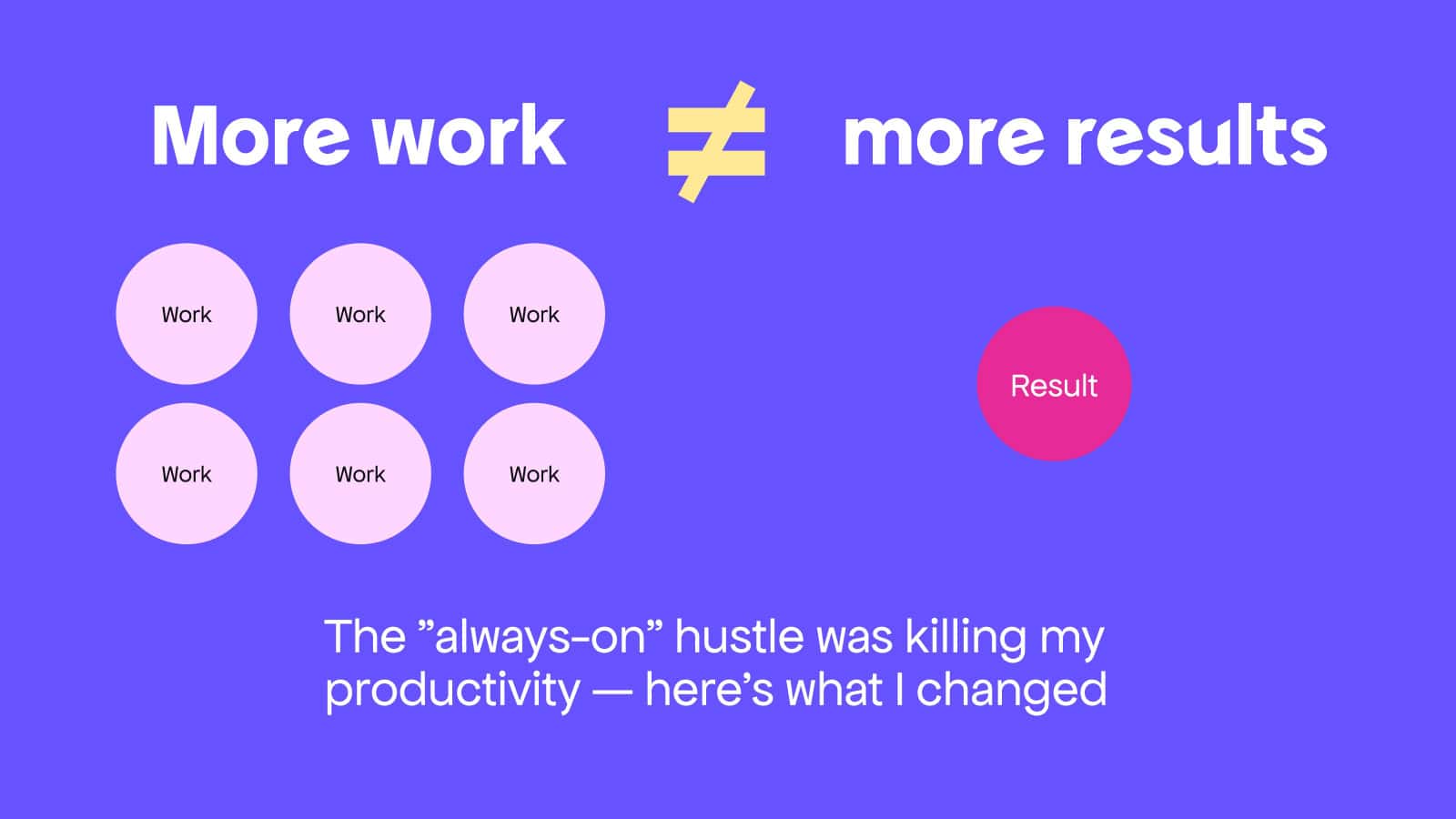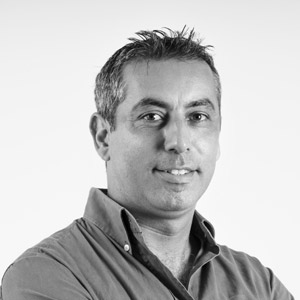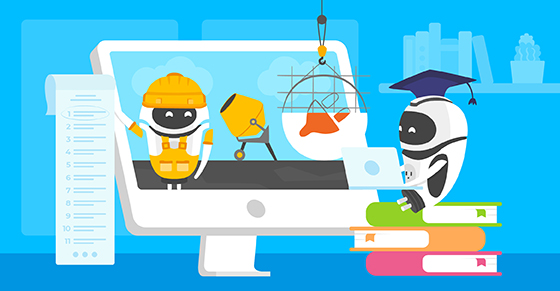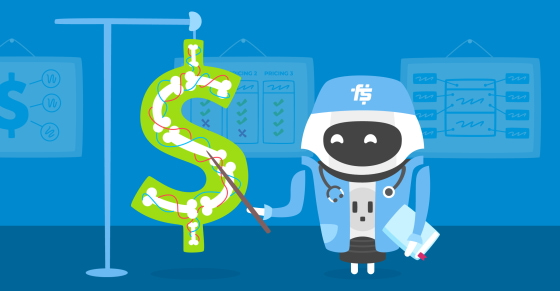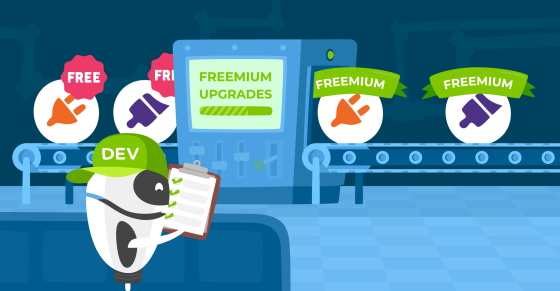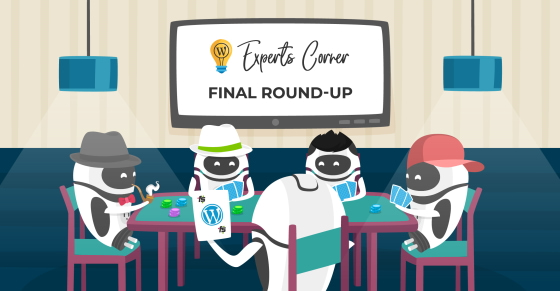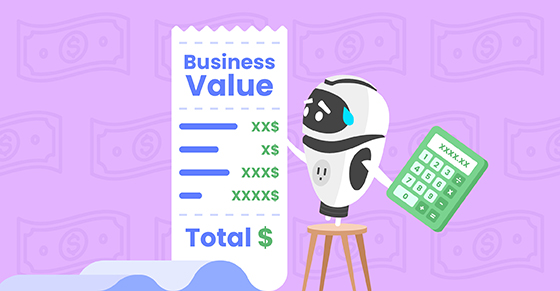|
|
In the last two years, I’ve gone through a growth journey that has helped me transform my life from constantly feeling anxious and unsatisfied to becoming happy, more positive, and more productive. Sharing my struggles with dozens of fellow founders taught me that anxiety is a pretty common problem among high-achievers. For those of you who are struggling to find balance or feel you aren’t reaching your full potential, I’d like to share the strategies and tactics that worked for me.
Why I Started Researching Productivity Hacks and High-Performer Practices
In 2020, I was suffering from anxiety. I’d feel pressure on my chest at night and I’d be up into the early hours of the morning. My brain was in a perpetual state of worry — ‘we are not moving/growing/delivering fast enough’ — I could have the best day and ride an emotional high, and then a sh*t day would shove me down and I’d beat myself up about it.
The Bigger Your Company Gets, the More Stress You’re Exposed to
It didn’t make sense!
Things were going great at Freemius. The company was growing, I was hiring, and we were getting more and more software makers to sign up. While hiring did take some responsibilities from my shoulders, it introduced new challenges and meant I’d suddenly have to learn how to recruit, train, and coach new team members, while still wearing the CEO and CTO hats.
I call these ‘growing pains’, and as founders will know, the amount of work accumulates over time and the responsibilities shift. Having a team means paying salaries and protecting livelihoods. More customers mean more support, more expectations.
In my quest for solutions, I discovered three core principles that high-achieving entrepreneurs live by to find their ‘zone’:
- Controlling your mindset and emotions
- Controlling your schedule and priorities (versus letting external triggers do it for you)
- Understanding what makes you happy
As I explored self-improvement more seriously, I came upon several leading figures who specialized in one or more of the above concepts from different angles. They introduced me to productivity hacks and high-performer practices that — honestly — changed my life. They are:
- Tim Ferriss: finding positivity and gratitude in all aspects of life
- Nir Eyal: the importance of being ruthless with your time and schedule
- Tom Bilyeu: how to ‘build a better you’ in every facet of your life
- Tony Robbins: using practices to wire your brain to think positively
- Dr. Joe Dispenza: unlocking your brain’s potential through meditation and mindfulness
- Andrew Huberman: dopamine as a reward system that isn’t just reserved for the milestones
- Ed Mylett: the importance of tasting your dream while you’re chasing it
Broken down, this is how I employed their practices in my day-to-day life:
1. Controlling Your Mindset and Emotions
The Philosophy of Stoicism
I discovered Stoicism (among other practices) through an American entrepreneur/lifestyle guru named Tim Ferriss (you probably know him from his ‘4-Hour’ series). Applied to the modern business world, the philosophy of stoicism can help high achievers succeed in high-stress environments by nurturing a mental architecture that leads to better decisions and less emotional reactivity.
For me, this means:
- Focusing on what I have control over and putting my best efforts into them
- Accepting and not stressing over events that are out of my control
- Striving to become a better version of myself every day (even if it’s something small and seemingly insignificant. It’s not!)
I’ll give you a recent example of where this mindset has helped me. Three years ago, a security vulnerability was exposed in the Freemius SDK. It was a damn stressful situation and — long story short — I let the incident and the imagined fallout dictate my actions without taking time to compose my thoughts and come up with an effective, unrushed plan of action. Because I was reactive and emotional, the ‘imagined fallout’ became a self-fulfilling prophecy and snowballed into something that should have, frankly, never occurred.
And then, it happened again.
In February of this year (2022), we received a report about potential security issues in our WP SDK update. Let me summarize what was different this time around:
- I didn’t react to the news right away. I prioritized it for the following week, reasonably calm in the knowledge that we had 30 days to patch and publicly disclose the information.
- I didn’t take it personally. Instead, I focused on what we could control and really took time to decide on the best course of action.
- After careful examination of the code to confirm the vulnerabilities, my team and I strategized and then implemented a plan that we thought would minimize exposure.
- And then, despite our best intentions and deliberate coordination, the issues were publicly disclosed early.
- Sure, I was mad and irritated, but it was out of my control and I feel we worked to the best of our abilities to resolve the issues.
Was it a good experience? Hell no — these things never are. But they happen and they will happen again. The bottom line is that I did not spiral into panic, which meant my team was able to focus on the problem at hand without stressing out.
Start and End the Day on a Positive Note
Wiring your brain for positivity in the morning and evening is an absolute game-changer for me. A well-spent morning means it’s easier to get through the day; a relaxed evening means you’ll sleep more deeply and wake up refreshed.
Here are the practices that positively bookend my days:
1. Configured a ‘bedtime mode’ schedule on my Android to auto-set the phone into Do Not Disturb mode between 10 pm and 8 am
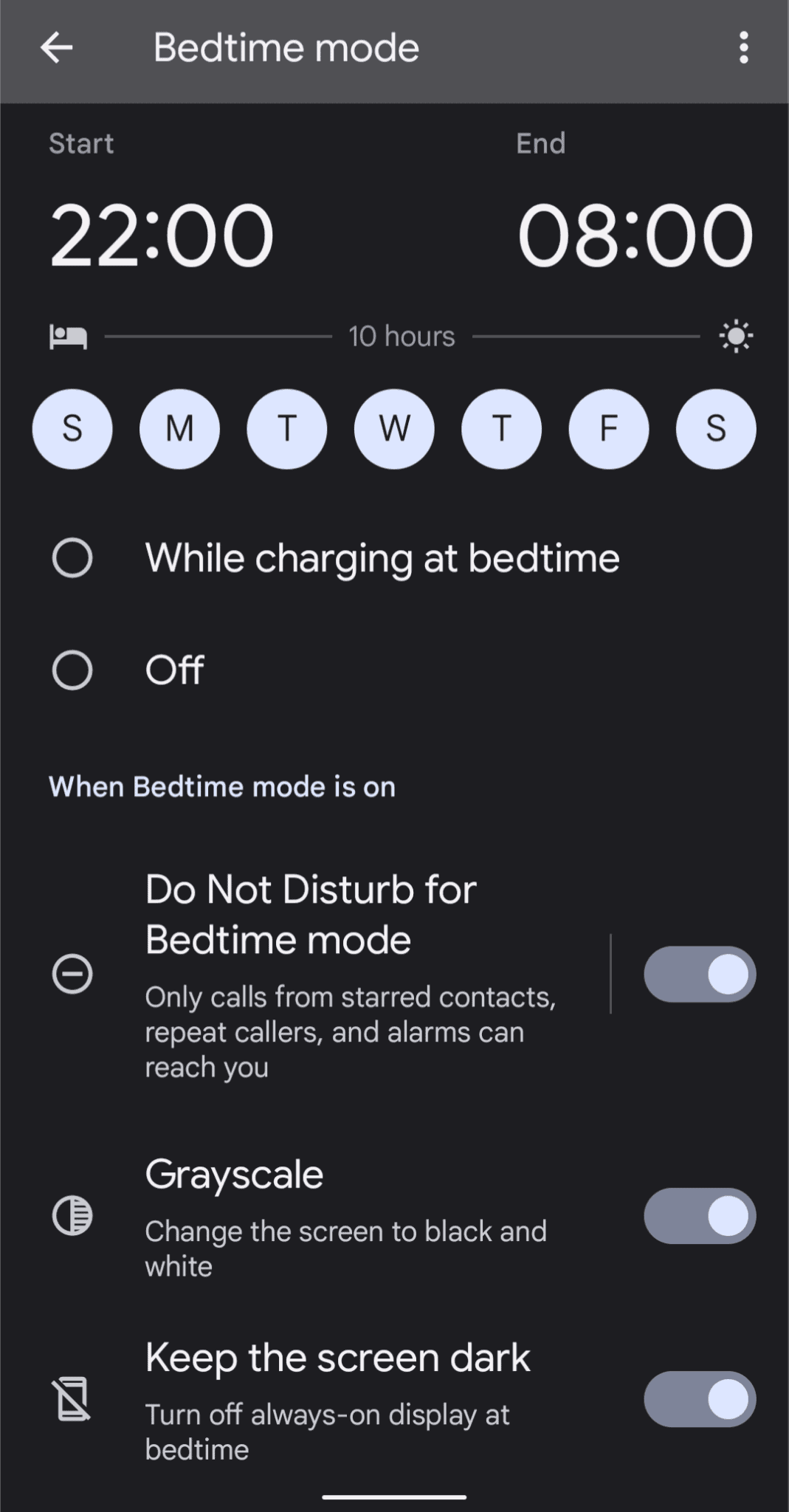
2. Wake up between 6:30–7:00 am with no alarm (phone notifications set to ‘off’ until 8 am)
3. Get out of bed in 10/15 minutes (my cute cats and their need to cuddle delays me sometimes 😻)
4. Put on some good music to stimulate joy and energize me
5. Stretching, push-ups, and similar light exercises further energize me and put me into the ‘fighter’ mindset (to tackle the day, not start a fight 🤣)
6. Open The Five Minute Journal app. I’ll expand on this shortly
7. Before checking email and other external triggers, I allocate calendar time slots to the most important activities I want to focus on for the day
8. Once the above is done, only then do I check my email and notifications
9. In the evening, once I’m in bed, I avoid all social media and open The Five Minute Journal app again to complete the day
The more days that start and end like this, the better and more grateful I feel about myself and life in general.
The Five Minute Journal App
The Five Minute Journal App has been a critical tool in my journey toward mindfulness. Every morning, I open the app and jot down three things I’m grateful for. Here are some examples:
- I have five fully functioning senses to enjoy life with
- I’m healthy and fit
- I’m privileged to enjoy great music that touches my soul
- I have two loving parents who pushed me to excellence and sacrificed a lot in their lives for my future
- I’ve built up a strong team of people who are also passionate about Freemius’s mission
I then take a moment to answer the app’s next question: What will make today great?
It could be work-related or something personal like spending quality time with my spouse in the evening. Maybe it’ll be a practical task I’ve been putting off, like rearranging my work desk! Either way, there is a level of satisfaction and personal gratification that comes with completing a work task or personal goal that you committed to/anticipated earlier in the day.
Additionally, the app shares daily motivational/inspirational quotes that I post to Freemius’s company-wide Slack channel. It may seem small, but these positive words and affirmations can make a huge difference in daily life.
In the evening, I use the app to write down the day’s highlights and to single out one thing I could have done differently or better. These reminders give you a sense of progress, of moving forward, and they help you appreciate the smaller tasks that make up the greater milestones.
One moment can change a day, one day can change a life, and one life can change the world.
— Buddha
This brings me to…
Neuroscience and the Dopamine Reward System
Milestones are reached by accomplishing the smaller goals in-between. If you can train yourself to enjoy the ‘bullet points’ in the lead-up to the grand conclusion, you’ll find that the next journey is more enjoyable and the climax of the milestone more fulfilling.
…What you realize is that your capacity to tap into dopamine as a motivator, not just seeking dopamine rewards, that is infinite.
— Dr. Andrew Huberman
Dr. Huberman explores the concept of the dopamine rewards system and shares a few high-performer practices in this interview:
The 300% Versus 97% Approach
My parents immigrated from Ukraine to Israel in 1990 when I was 5 years old. They are both Ukrainian Jews who grew up in the Soviet Union where Jews had limited opportunities. To give you an idea, there were quotas for how many Jews could get into university and other similar directives that marginalized us. So if you wanted to succeed and get accepted, you had to be the best and, therefore, the Jewish-Soviet education was to push kids to the extreme in everything that related to education and sports. For me and many others who were hungry to prove ourselves, this created a mentality of having to be the best, of achieving more to prove that we not only had the right to be there but were more deserving too.
It was never a 95% effort for me — it was an always-on, balls-to-the-wall 300% effort. When you combine this with a high-achiever disposition, the result is a perpetual state of believing that nothing is ever good enough, no matter how hard you work.
This nearly fast-tracked me to burnout.
Thanks to Tim Ferriss’s book, Tools Of Titans: The Tactics, Routines, and Habits of Billionaires, Icons, and World-Class Performers, I was able to dial it down from 300% to 97%. This doesn’t mean I’m not always reaching for high productivity — I still log 12 hours almost daily — but I’m able to be more realistic about what I can achieve and am more able to ‘enjoy the ride’. Yes, there will be times of urgency that necessitate an ‘all hands on deck’ approach, but they aren’t particularly common and the ‘97%’ approach helps you avoid tackling ‘normal’ days in a state of heightened anxiety/stress. This practice allows me to be fully present in whatever I do, when previously my brain couldn’t afford to be fully present as I was always beating myself up about the million other things that were currently open.
2. Controlling Your Schedule and Priorities
We are slaves now to the urgent at the sacrifice of the important. If you don’t plan your day, something or someone is going to plan it for you.
Nir Eyal is a behavioral designer who helps foster healthy habits in peoples’ minds, or in other words, teaches us how to be ‘indistractable’.
More control leads to less distraction and, funnily enough, more flexibility and agility. But achieving this control takes the ‘forethought’ that Nir mentions in the video. So, whatever you do…
Tie Your Tasks to Your Calendar
It’s tempting to move as fast as possible to push the needle, but this often means you’ll be trying to do as much as possible in too short a time. Here’s my advice: plan ahead, prioritize, and schedule tasks into your calendar. And then be relentless about the schedule!
By doing so, you get a high-level view of your day/week and can adjust accordingly if things are looking tight. If you’re disciplined with your calendar and give yourself a measure of flexibility, the tasks will happen because you’ve already considered the timings and prioritization — they’re not just to-dos floating about waiting to be plucked from the always-flowing pipeline.
I mentioned flexibility and part of that is planning for the unplanned. Scheduling an hour or two for the ‘unexpected’ into your day will help you respond to issues in a calmer, more considered way than if the slot wasn’t there. In many cases, issues don’t warrant an immediate response, which means you’ll get to use the slot for more critical tasks and get ahead of your planned workload, which gives you extra satisfaction because you’ve completed a task beyond what you’ve planned for.
Speaking of the unexpected…
Avoid Immediate Reactions
Sh*t happens.
The best time to react to urgent situations is not right away! When stress levels are high and you respond without taking the time to think, you’re being driven by (often negative) emotions that break the schedule you’ve painstakingly crafted for yourself.
I’m speaking from experience here: avoiding immediate reactions to unexpected problems greatly reduces stress.
Here’s how I tackle it now.
I get up from my desk calmly, evaluate the urgency of the situation, and ascertain whether the issue warrants pushing scheduled tasks out to the next day. Regardless of what the answer is, I don’t let the situation dictate my emotions. I talk to myself — ‘Vova, you’re in control’ — and I trust my ability to decide on the best course of action.
Adding to that, the way you respond to these types of situations influences your interactions with colleagues and customers. If you’re positive and constructive in the face of adversity, it feeds out to your team and gives them an emotional template on how to respond in similar situations. If you’re constructive and understanding with customers when there’s an issue, there’s more chance you’ll be able to disarm them and reach a mutual understanding without too much of a fallout.
Remove Distractions

To truly focus is to be fully present
Both a blessing and a curse, there’s no denying that social media is an absolute time-suck. Not only can the ‘infinite scroll’ and addictive qualities eat into your valuable personal time (especially before bed), but your favorite channels distract you from priorities during the workday.
On average, a user spends 2 hours and 25 minutes on social media every day 🤯. A bathroom break can turn into 30 minutes of Instagram Reels. A glance at a WhatsApp notification on your phone can transition into 20 minutes of scrolling the void that is Facebook. What’s more, it takes time to ‘context switch’ – refocus your brain into ‘work mode’ after these unscheduled ‘breaks’.
To avoid this, I’ve uninstalled the apps from my phone (except for Twitter*). I also don’t keep an email tab open when I’m working, and though I still have my Facebook account that I can access in the browsers, it’s easier to be disciplined because part of my scheduled downtime factors in checking notifications for these platforms.
By purging my phone of social media, I’ve managed to save 2 to 3 hours of my day (which correlates with the stat above). It’s crazy when you think about it — that’s a big chunk of time you can’t get back, time you could be spending way more productively.
*In terms of business, there is a downside to disconnecting your phone from social media. Networking, responding to prospects and existing customers, and being active and ‘on the pulse’ are all important parts of being an owner of a growing business. I still have Twitter on my phone because it’s a powerful channel for sparking opportunities in the space.
It’s all about balance, I guess 🤷
Grab a free copy of our Cheat Sheet for
Selling Plugins and Themes
A growth roadmap with concise, actionable tips for every milestone of WordPress product development.

The 5 AM Club
Winning starts at your beginning. And your first hours are where the great heroes are made. Own your mornings and you’ll master your life.
Popularized by Robin Sharma’s bestselling book The 5 AM Club over twenty years ago, this not-so-secret productivity hack is practiced by some of the most successful people in the world. Richard Branson reportedly gets up at 5 am while Tim Cook is said to take it a step further by waking up at 4 am.
Whether it’s to work on personal goals, fit in exercise, or enjoy a few hours of peaceful solitude, the benefits of getting a jump on the day with no interruptions are obvious. It’s also a good practice if your business is entering a period of pressure as it allows you to accomplish more.
I employed this high-performer practice for a few months and found that I was insanely productive — I had an extra three or four hours to work on my own and Freemius’s deliverables before the rest of the ‘world’ was awake. Of course, there are disadvantages, which is why I eventually handed in my membership to the 5 AM Club (for now).
- You feel as if you’re out of sync with the world. You wake up while everyone’s sleeping and get into bed when most people are still settling in to relax for the evening
- At 8 pm, I was simply dead to the world:

All systems go…ne
3. The Pursuit of Happiness
If I had to pare down what drives me, that’s it. In life, in my relationships, in work: if I can progress to ‘build a better Vova’ in some small way, every day, I’ll consider that day a success.
I firmly believe that finding happiness, both personally and professionally, is fundamental to the high-performer practices and productivity hacks mentioned above. If you’re not happy or fulfilled, you’re simply not working and living to your best potential.
For me, this started with:
Self-Affirmation and Self-Acceptance
If you keep growing, you’re going to feel alive. And if you keep growing, you’re going to have more to give. And when you’re growing and giving, life is magnificent.’
— Tony Robbins
When you aren’t comfortable in your own skin, you tend to overanalyze and question every decision you’ve made. This form of negative thinking is a major barrier to productivity and leads to second-guessing, rushed decision-making, and a lack of confidence that can come off as inauthentic and unengaging.
I still struggle with negative thinking, but it’s less of a mental obstacle than it was two years ago. When I finally embraced the real Vova — eccentricities, lingo, warts and all — I stopped wearing social masks when communicating with my ecosystem colleagues. Once I doubled down on ‘Vova Unfiltered 😜’, I discovered that people were more willing to engage in deeper discussions, which led to stronger business relationships and friendships with my peers.
Make Time for Loved Ones
Freemius is my passion. But once I started to separate work from my personal life, I found I was a much happier person. When I work, I work. When I’m spending time with loved ones or on personal interests, I am fully present.
This might be my biggest piece of advice:
At the end of the day, people, relationships, and experiences with family and loved ones are what we remember. Even if you are swamped with work on your growing company, allocate some time for drinks with friends or an afternoon lazing in the garden with your significant other. Get to that bookshelf you’ve been meaning to build or finish that puzzle sitting on your living room table.
Make time for yourself, your hobbies, and your loved ones.
Sometimes, work can wait. But when it can’t, you now have the tools to make sure you’re performing to your highest potential 😉
